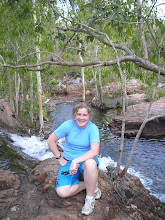 Breaking News, Martin Fletcher
Breaking News, Martin Fletcher"Get in, get close, get out, get a drink" is the working philosophy of network correspondent Martin Fletcher, who, over the last three decades has filmed and reported on conflicts from Israel and Rwanda to Cambodia and Kosovo.
His autobiography is not a clinical examination of places and events. It is both a personal account, and an examination of the ethics of news reporting and humanity.
How close is too close to film a person in their last moments alive?
How can we justify our wilful ignorance of the plight of entire social groups?
How do you respond to a terrorist fervently promising to blow up your family?
How far can you push an interviewee who can have you killed instantly?
Can you enjoy the hospitality of a warlord whose wealth is food stolen from a starving population?
Throughout his career as a foreign correspondent, Fletcher was faced with questions like this. He had to decide on many occasions how far to go to connect to the audience through his footage.
"...This is what it's all about; this murderous civil war and famine aren't just a mind-numbing welter of statistics, numbers of victims and tonnage of food aid, dollars of tax money and soldiers on the ground. They are people dying." (p.160)
Breaking News is an extraordinary story of a career that involved observing the suffering of others and using it to illuminate the larger issues, and it is told in a similarly extraordinary manner, using anecdotes and events to highlight the underpinning ethical concerns. It reflects a constant struggle to maintain one's humanity when peering from behind the distancing camera lens at the effects of extreme inhumanity, and reveal the dilemmas all journalists face when recording the events which are moment by moment becoming history.
Repeated many times throughout is the fact that it is not so much experience as luck that keeps you alive as foreign correspondent. In Cyprus in 1974, the team's car is driven into a minefield, and two of the three passengers tread on mines within metres of each other, one dying. Fletcher manages to pick his way out from between the mines, filming the entire time. It is the distancing effect of looking at the world through a lens, Fletcher writes, that is so dangerous to a journalist, giving them a false sense of invulnerability, leading them in some cases to their death.
Well worth reading, Breaking News seamlessly interlinks the adventurousness and seriousness of a career in the frontline of reporting, and the issues it raises are salient for all of us who wish to claim a place as human beings.
